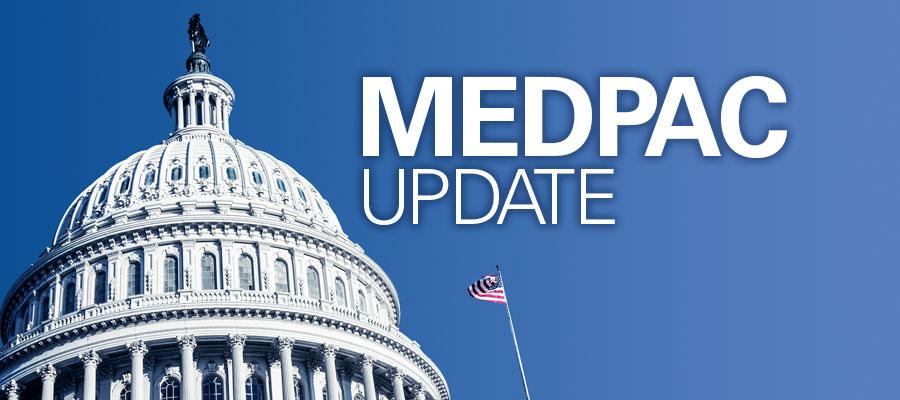MedPAC approves 2021 payment recommendations

The Medicare Payment Advisory Commission yesterday recommended that Congress provide a 2% market-basket update for the hospital inpatient and outpatient prospective payment systems in 2021. The commission also recommended using the difference between the update and amount specified in current law to increase hospital payments through its proposed Hospital Value Incentive Program, which would replace the four current hospital quality payment programs with a single alternative program. AHA this week said it supports the concept of appropriately linking quality performance to payment, but has significant concerns with the design of the HVIP.
In other action, MedPAC recommended that:
- the Health and Human Services Secretary increase the fiscal year 2020 Medicare base payment rates for long-term care hospitals by 2% in 2021;
- Congress reduce the FY 2020 Medicare base payment rate for inpatient rehabilitation facilities by 5% in 2021;
- Congress eliminate the FY 2021 update to the Medicare payment rates for skilled nursing facilities;
- Congress increase the calendar year 2021 Medicare payment rates for physician and other health professional services by the amount specified in current law;
- Congress reduce the CY 2020 Medicare base payment rate for home health agencies by 7% in 2021;
- Congress eliminate the CY 2021 update to the Medicare conversion factor for ambulatory surgical centers, and HHS require ASCs to report cost data;
- Congress eliminate the FY 2021 update to Medicare base payment rates for hospice providers; and
- Congress increase the calendar year 2021 Medicare end-stage renal disease prospective payment system base rate by the amount specified in current law.
Today, commissioners discussed a staff analysis of the relationship between the 340B drug savings program and oncology drug costs, requested by the House Energy and Commerce Committee in 2018. The findings were inconclusive overall, showing higher spending for some cancer drugs but not others, and not generalizable to other conditions. The study will be included along with MedPAC’s previous work on hospital consolidation in a chapter of the commission’s March report to Congress.
Commissioners also discussed potential changes to how beneficiaries are assigned to Medicare Accountable Care Organizations, including the identifier used to assign beneficiaries and retrospective versus prospective assignment, but concluded they need more detail on the different approaches before making a recommendation. In addition, the panel discussed potential approaches to restructuring the Part D program and redesigning the Medicare Advantage quality bonus program.

